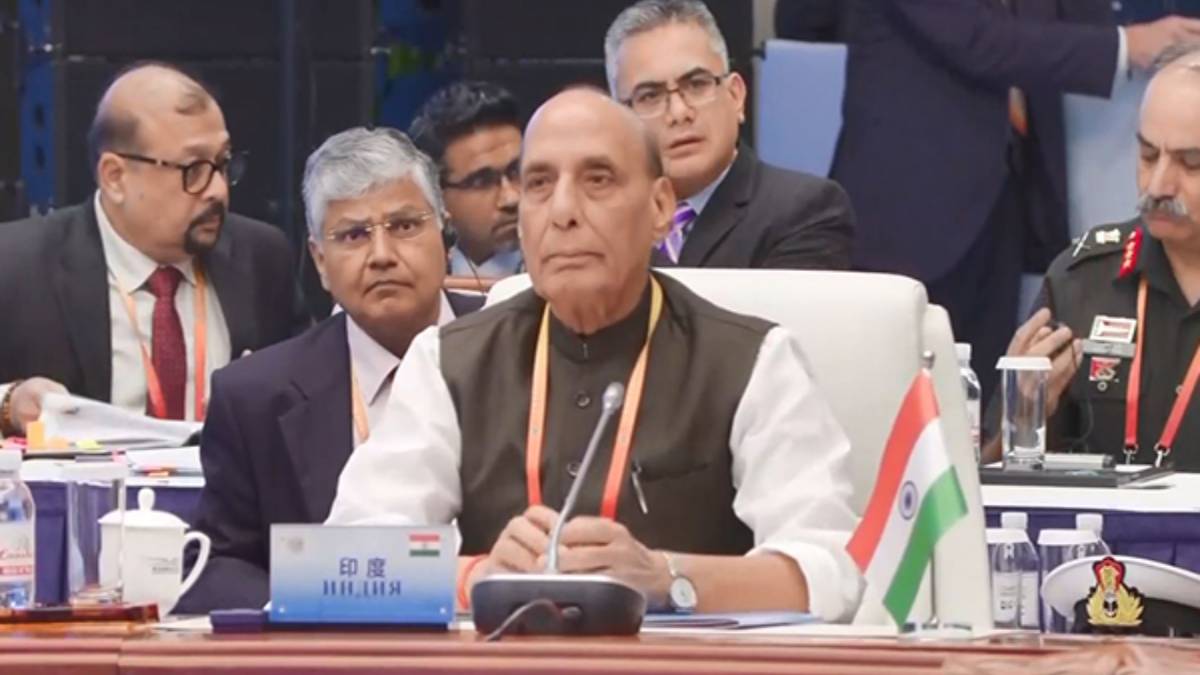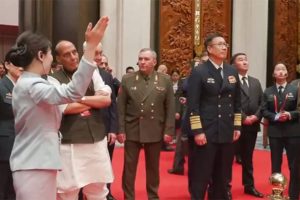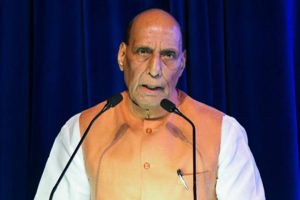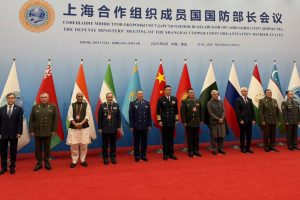Defence Minister Rajnath Singh strongly defended India’s proactive counter-terrorism strategy during the Shanghai Cooperation Organisation (SCO) Defence Ministers’ Meeting in Qingdao, China, on Thursday, citing the launch of Operation Sindoor as a decisive step to pre-empt and deter further cross-border terrorist attacks.
Referring to the April 22 Pahalgam terror attack, where 26 civilians including a Nepali national were killed after being targeted based on religious identity, Singh said: “India exercised its right to defend itself through Operation Sindoor. Terror epicentres are no longer safe. We will not hesitate to act.”
He reiterated India’s zero-tolerance policy towards terrorism, stating that terror, in all forms and motivations, must be condemned and countered collectively by SCO members. Singh urged the bloc to call out double standards in tackling terrorism and hold perpetrators, organisers, financiers, and state sponsors accountable.
Calling terrorism, radicalisation, and extremism the biggest threats to regional peace, Singh said: “Peace and prosperity cannot coexist with terrorism or with the spread of Weapons of Mass Destruction in the hands of non-state actors. SCO must not shy away from criticising those who use terror as state policy.”
Highlighting the critical role of the SCO’s Regional Anti-Terrorist Structure (RATS), Singh called for expanded efforts to prevent youth radicalisation and counter the use of emerging technologies—like drones—for weapons and drug smuggling.
He emphasized that threats today transcend borders and require cooperation rooted in mutual trust, transparency, and collective action.
“We face an intricate web of challenges—transnational terrorism, cyber-attacks, hybrid warfare—which demand a unified response.”
Addressing broader geopolitical concerns, Singh warned of the decline of multilateralism and rising strategic competition among major powers, urging SCO members to embrace reformed multilateralism to foster dialogue, peace, and economic recovery.
The Defence Minister also advocated stronger India-Central Asia connectivity, stressing the importance of respecting sovereignty and territorial integrity—a clear message to nations violating SCO principles.
Reaffirming India’s commitment to peace and development in Afghanistan, Singh outlined India’s humanitarian aid and ongoing capacity-building initiatives as Afghanistan’s largest regional development partner.
He also addressed non-traditional security threats, including climate change, pandemics, and food/water insecurity, highlighting India’s initiative on the Coalition for Disaster Resilient Infrastructure (CDRI) as a model of international cooperation.
Concluding his address, Singh promoted India’s regional security visions—SAGAR and MAHASAGAR—aimed at ensuring peace and prosperity across the Indian Ocean and beyond.
“Let us work together in lockstep to strengthen stability and security in our region. Guided by the ethos of Vasudhaiva Kutumbakam—the world is one family—our motto must be ‘One Earth, One Family, One Future,’” he said.





